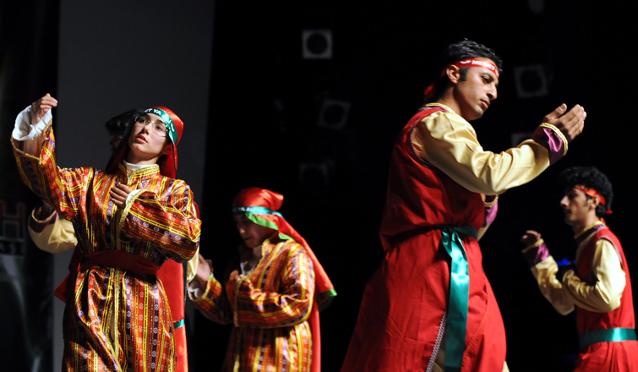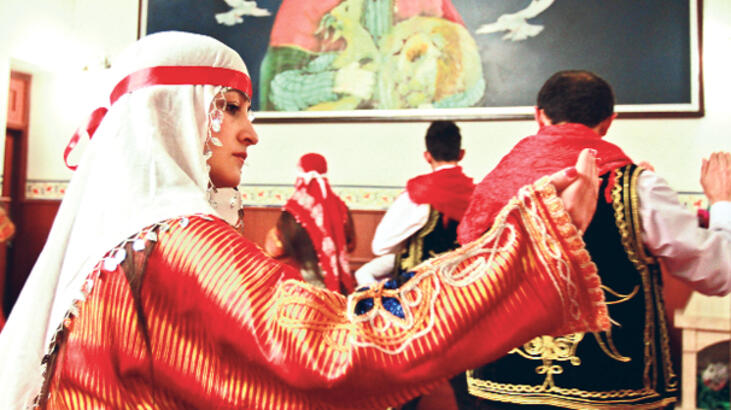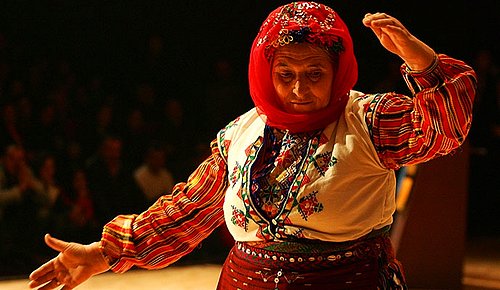What is Alevism?
Alevism is not a stagnate belief but has evolved by interacting with various beliefs, spiritual doctrines and cultures over a wide geographical area from Central Asia to Balkan Mountains throughout the history. A process of gradual convergence between various different mystical schools since the 13th century constitutes what we call Alevism today. The concept of Alevi is actually a broad term covers different language and ethnic communities sharing same belief components. What defines Alevi belief can briefly be summarized as follows;
- In Alevism, every human being is a carrier of the essence from God.
- God in Alevism is Hakk, which means the truth.
- If God created all living thing then, human being is the most sacred thing in the world.
- Therefore, Alevis consider every living creature sacred as the carrier of an essence from God.
- Alevis call each other can (soul), which is gender-neutral name. As a result of this understanding, the position of women in Alevism is equal to that of men.
- Alevis consider god, cosmos and human in a total unity. This unity is symbolized with an exclamation, Hakk Muhammad Ali, which unities three most sacred person in Alevism, God, the Prophet Muhammed and Ali, cousin and son-in-law of the Prophet.
- A well-known verse of Hallacı Mansur, a Sufi poet from the 10th century, indicates the unit of God and human in Alevism, Ene’l Hakk (I am one with God).
- The founder saint of Bektashism, Haji Bektash Veli, from the 13th century explains this importance with his saying “My Kaabe is the human being”.
- Alevis do not consider God as fixed into a place of worship, iconography or written books but He is la-mekan (placeless) and human hearth is His only domicile.
- Therefore, Alevis do not fear God but only bear love for him and they do not believe in paradise or hell but an infinite circulation until one reach the status of perfection and reunion with where he or she comes form.
- Alevis consider all holy books and the prophets with great respect. Because, for them, the aim is one but ways to reach this aim can be various.
- This understanding prioritizes reason over dogma, as Haji Bektashi Veli says, “the end of the path would be dark if the path is not science.”
- Alevis consider all nations as one regardless of ethnic, racial, gender and linguistic differences simply because each creature carries the same sacred essence.
- Humanism, egalitarianism, mutual assistance, and gender-equality are the main social characteristics commonly shared by Alevi communities. Their lodge-centered social organization is based on a kind of agrarian socialism.
- A well-known sayings of Seyh Bedrettin, a religious scholar and rebel to the Ottoman Empire, “everything except the cheek of lover can be shared”, explains this egalitarianism perfectly.
• As a result, resisting against the injustice expressed with a phrase “allegiance with the oppressed (mazlum)” and “standing against the tyrant (zalim)” has become the main social attitudes in Alevism.
Alevism have been forced for political reasons to live a closed social life in rural areas for centuries and as a natural result of this condition, they fundamentally dwell on the traditions of oral accounts and their unique social institutions. The oral tradition narrates the Alevi history embedded in epic tales as its nature would suggest. The oral tradition in Alevis takes its position among the public with saying which are performed together with the saz (a traditional music instrument) and lyric togetherness and menkıbes (mythical stories). Both of these elements contain to a great extent special sayings and meanings originating from the inner structure of the community.
Alevi communities, together with the kindred Bektashi order,
constitute the largest sectarian minority in Turkey. They make up anywhere
between 15-25% of the population of Turkey, with smaller pockets of related
groups in the Balkans. Alevis share in common with Shi’is an attachment to
Twelve Imams, including Imam Ali and his eleven successors. They are, however,
clearly set apart from shi’is, and from mainstream Islam in general, by the
heavy doses of mysticism that mark their belief system which bears an affinity
with Sufism and a number of pre-Islamic mystical traditions.
Alevism based on the idea that the individual is the
microcosm of the entire universe, and that humans are the loci of God’s
manifestation. This belief is concisely articulated by the Alevis in the saying
“Whatever you seek, seek within the human.” Alevis, therefore, believe that
showing kindness and generosity to fellow human beings is more important than
following formal aspects of religion. The same value-system today sustains
Alevis’ progressive politics and open-mindedness about gender equality.
A well-known Alei hymn by Riza Tevik (1869-1949), whom
Alevis regard as one of the greats Alevi poets, revolves around this core Alevi
idea which situates human beings at the center of their religion:
Come, o Dervish, come, don’t go afar
Whatever you seek, believe it is in you
Do not torture your self[nefs] in vain
If what you aim for is the Kaba, the All-Compassionate is in
you
Do not wander in the desert looking at mirages
Do not look into the air saying “Allah, Allah”
If you are a seeker of truth, do not look for a book
If you know how to read, the Koran is in you.


